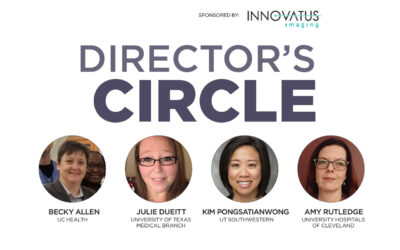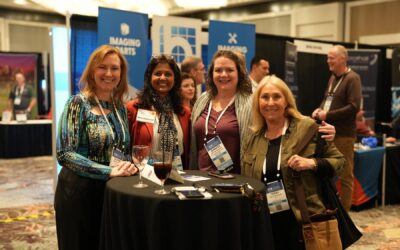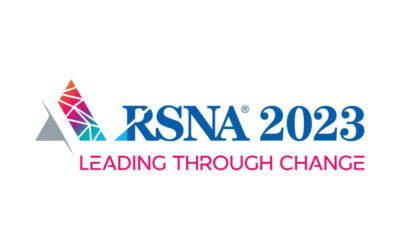 I find myself envious that my toddler can have an utter and complete meltdown, and moments later, it’s as if it never happened. What magic do these little beings possess that allows them to so quickly let go of a thing that was so monumental at the time and move on? I’m sure most of us have had that magic at one point in our lives because we all were once toddlers. How did we lose the magic?
I find myself envious that my toddler can have an utter and complete meltdown, and moments later, it’s as if it never happened. What magic do these little beings possess that allows them to so quickly let go of a thing that was so monumental at the time and move on? I’m sure most of us have had that magic at one point in our lives because we all were once toddlers. How did we lose the magic?
Oh, to have the recovery time of a toddler rather than the long memories and emotional baggage we carry as adults, particularly in the workplace. I’ve heard so many times over the years at various companies that, “This organization has people with long memories.” In some cases, those memories are super helpful. They’re wonderful to help build connections to a place’s history and mission or build a healthy relationship with a coworker over time. And in other cases, it might serve the greater good for people to have the recovery time of a toddler by releasing old thoughts and creating new and powerful ones. While I’m almost positive, our little ones are not thinking that deeply, what they’re doing is, in effect, letting go of that old stuff and moving on to more exciting things. They’re focused on mindboggling things like discovering how high she can jump, how far he can tilt the rocking chair before it tips over, or exactly how much they can write on the wall before mommy notices.
Those who have retained the magic, I envy you! I would love to know how you continue to move on. I have a friend who simply takes a nap, and then all is well. He’s got the magic. But others of us need to talk about the thing repeatedly until it stops squatting rent-free in our brains. Recovery may happen in one conversation or a series of conversations over many days. The thing is, we consciously know that so many of the things we allow to upset us likely don’t matter as much as the “good time” we spend on them.
So we go back-and-forth with these things that trouble us and think about how we shouldn’t spend so much time thinking about them. Ironic, right? We can’t stop because we have a process that we must follow. Feel – think – talk – feel – think – talk – remember it doesn’t matter that much – feel – think – talk – resolve – move on – recover. How do we disrupt that process and move on and recover much more quickly? The answer likely varies from person to person. So, if you have one, check in with your toddler? What can I learn by observing them? I think mine skips everything and goes from feeling to moving on. I should do that with most things I encounter. Check back in with me to see how that goes.
One of my favorite lines (and most valued advice) comes from a wise woman named Vivian Lee, a retired history teacher and an elder I greatly admire. Years ago, we were having a conversation about something that seemed meaningful at the time – relationship stuff – and after a couple of minutes back and forth, she abruptly said, “And we’re not going to spend any more good time on that.” It knocked me off balance for a good 5 seconds, and when I recovered, I realized how right she was. And how profound a statement! “We’re not going to spend any more good time on that.” Talk about a disruptor to my process. It completely changed how I thought about the value of my time, not to mention how I’d wasted time venting and thinking about something meaningless that could have been used on something else. How much good time do we waste on things that don’t matter so much? Toddlers seem to get it.
As a human resources professional, I am not short of opportunities to incorporate lessons learned from my toddler and Mrs. Lee. I recently conversed with an employee I’ll call Golden, who experienced the virtual version of overhearing someone talking behind his back. Two employees exchanged messages during a video conference, unaware that all participants could view their comments. The one comment Golden saw was benign by all accounts but insulted him. He spent days talking to his manager, his manager’s manager, two people in human resources, writing emails, and spent an unmentionable amount of time thinking about what happened. I think we all realize that people in this world talk about us, good and bad, behind our backs. When they inadvertently speak about the bad in front of us, we have to determine how much good time we spend on it. There is no one way to handle it. I certainly encourage you to document it, just in case. Then decide whether you’re going to have the recovery time of a toddler or if you are going to stew in the upset. It’s an individual choice. After I walked Golden through the amount of headspace he’d allotted to this situation, he decided to let it go. He decided the problem didn’t deserve the good time he gave to it.
It helps to have someone shift our paradigm. Witnessing a little person skillfully push past a challenging moment, and having Mrs. Lee stop me from spending good time on menial things, has undoubtedly shifted mine on many occasions. I’ve also been able to pay that gift forward to people like Golden. And with that, I wish you the recovery time of a toddler and the ability to spend very little good time on things that don’t deserve it.
– Kiahnna D. Patton is senior human resources business partner at Children’s Hospital Los Angeles (CHLA) and a nonprofit founder.








